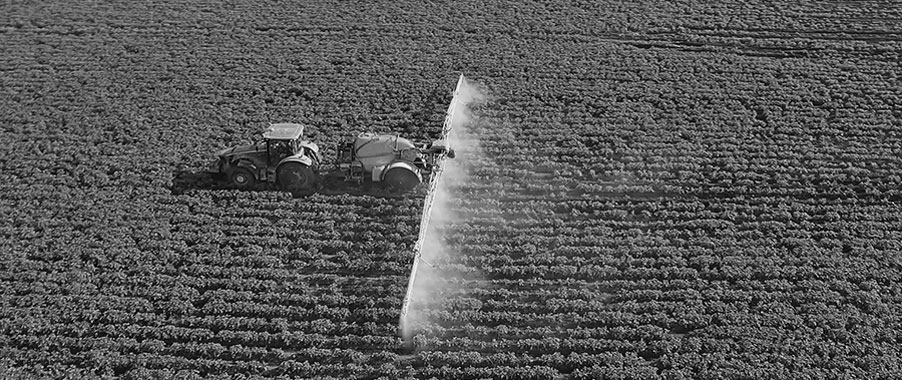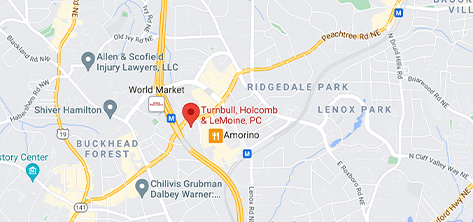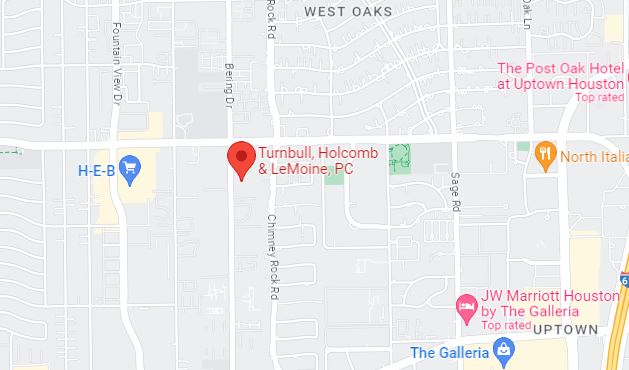

Summary
Paraquat is a deadly herbicide that has the potential to kill a human being with just a few drops. Recent studies and research have demonstrated that long term low dose exposure can cause Parkinson’s disease. A large number of farm workers using or exposed to paraquat have been disproportionately diagnosed with Parkinson’s. This has led to a ban of paraquat in many countries. Although the United States still allows its use, there are now hundreds of ongoing paraquat lawsuits pursuing justice for the victims. Turnbull, Holcomb & LeMoine has extensive experience in mass tort litigation and ultimately taking individual cases to trial with successful outcomes. Contact us now for a free consultation and evaluation of your case.
What is Paraquat?
Paraquat is an herbicide widely used and marketed in many products, that became used worldwide as an agricultural product. Paraquat was first discovered in 1882 by two Austrian chemists, however, it wasn’t until 1955 when scientists working for the British Chemical Company Imperial Chemical Industries (ICI) discovered its herbicidal properties. Several multinational chemical companies began making, marketing and selling paraquat in 1962 and reaching a global agricultural marketplace.
Why and How is Paraquat used?
Since reaching a widespread market in 1962, paraquat has been manufactured by several companies who market the products under several brand names. It has been sold in various blends with other chemicals. These products have historically been sold in the agricultural marketplace. Paraquat has always been known to be poisonous. If ingested, it can kill a human with just a few drops. Its poisonous nature also kills weeds, making paraquat effective as an herbicide.
Similar to Roundup and glyphosate, the benefit to using an herbicide like paraquat after the harvest of crops is that it prevents farmers from having to manually till and weed fields before replanting for the next harvest. In earlier years of paraquat use, it seemed to many farmers to be a time and work saving method, increasing crop yields and the bottom line of the farms employing it.
The negative health effects of low dose exposure to paraquat can take years or even decades to manifest themselves. Visible diseases or injuries in the human body may not be immediately apparent. Now that it has become widely known and accepted that paraquat contributes to human disease even in low doses, the foothold it gained in the industry before this was known caused a number of industry influencers and special interest groups to do everything possible to avoid having to give up anything they see as an impact to their bottom line.
How Toxic is Paraquat?
It has been known since the initial discovery of paraquat that it is a poison that is toxic and dangerous to humans. Because it had a specialized purpose in the agricultural industry and was clearly a dangerous chemical, its marketing and sales was largely restricted from the general public. However, despite it known harmful effects, the manufacturers and chemical companies who profited from its sale merely warned about the dangers of ingesting the poison. These profiteers consciously failed to warn or otherwise tell purchasers that a repeated low dose exposure to paraquat via contact with skin and/or inhalation significantly increases the risk of Parkinson’s.
Paraquat had two notorious exposures causing scandals and awareness of the extreme danger due to two widely known events. In the 1970’s the United States federal government, in efforts to reduce the flow of marijuana imported into the country from Mexico, began a campaign to spray Mexican marijuana fields with paraquat to destroy the crops. These tainted crops ended up being imported and used in the United States, which caused unknown damage to those who were exposed. The practice of spraying illegal marijuana fields in the United States with paraquat began in the 1980’s and was contested by an uproar from the public and lawsuits which eventually led to the complete halt of the practice in the 1990’s. Also, in the 1980’s, the lethality of paraquat was worldwide news when a person in Japan poisoned several drinks with the chemical and placed them in a vending machine. After this event was said and done 35 people were poisoned and 11 of them died within hours of ingesting the poison.
What About Paraquat and Low Dose Exposure?
Manufacturers and chemical companies never warned people about the dangers of exposure to paraquat in repeated low dose exposures. In the 2000’s, a pattern emerged that illustrated that large numbers of farm workers developing Parkinson’s disease, disproportionately affecting them and others who worked on or near agricultural fields that used paraquat. The high rates of Parkinsons’ prompted several independent organizations to research the issue. These produced a number of studies that, to date, have at least begun to effect positive change. In 2009, The American Journal of Epidemiology found that a link between Parkinson’s disease and the agro-chemical paraquat does indeed exist. Not long after, the National Institute of Health announced that people who are exposed to paraquat are about 250 percent more likely to develop Parkinson’s disease than other people with no direct exposure.
Since then, additional research studies have demonstrated that the risk of developing Parkinson’s disease due to repeated low dose exposure was more than 600 percent compared with those not exposed. These revelations were not limited to the United States. A number of other global studies caused such an uproar and litigation in other countries, that paraquat has now been banned in more than 32 developed nations, including the European Union, Switzerland and Brazil. Stunningly, to date, the United States continues to allow the sale and use of paraquat, and the Environmental Protection Agency (EPA) has continued to deny paraquat’s clear link to Parkinson’s disease, issuing only minor restrictions on how and where the lethal poison can be applied.
What is Parkinson’s Disease?
Parkinson’s Disease is a nervous system condition which is usually diagnosed by a neurologist by reviewing symptoms along with a neurological and physical examination. There is no specific test to diagnose a patient. The most common visible manifestation of the disease are tremors, as well as stiffness and/or slowing of movement. Parkinson’s disease often causes a person’s face to show little or no expression. It can also cause a person to have soft or slurred speech. The symptoms worsen as the condition progresses over time. Though there is no cure for Parkinson’s disease, there are many medications available that help limits its symptoms by regulating certain areas of the brain. Some people diagnosed with Parkinson’s disease can live for a long period of time. However, the care of a person who develops this disease is very extensive because it requires extensive medical treatment, medication, physical therapy, and even treatment for mental well-being as a person struggles with the progression of the disease. It is not uncommon for a person battling Parkinson’s disease to ultimately have medical expenses well into millions of dollars.
Who Is At Risk?
People who have either had an accidental exposure to paraquat or are agricultural workers who have had repeated low dose exposure to paraquat are those who are most likely to develop Parkinson’s Disease. Even agricultural workers such as those doing the harvesting or other farm jobs who did not have direct contact with the spraying of fields, but worked on those same fields where paraquat was used are at a very high risk for developing Parkinson’s Disease. Also, people who lived, worked or spent significant time near fields where paraquat was sprayed have had a risk of exposure due to overspray, as well as via non-direct application methods of the poison, such as aerial dusting.
Paraquat Lawsuits
The expenses to families and patients related to those suffering from Parkinson’s disease, collectively, cost billions of dollars each year. Victims not only have to deal with the burden of an extremely high cost of treatment, but also lost wages, as well as physical and emotional anguish that also can affect their loved ones. The dangers of paraquat and its link to Parkinson’s Disease has been examined by several independent organizations, which have produced a wealth of studies and information showing paraquat’s causal relationship with Parkinson’s. Many affected people in the United States have initiated paraquat lawsuits and litigation, and many have filed suit against Syngenta, the world’s largest manufacturer of the poison. Currently, more than 150 paraquat cases have been consolidated in the U.S. District Court for the Southern District of Illinois in a “multi-district litigation.”
Turnbull, Holcomb & LeMoine Paraquat Lawsuits
Paraquat lawsuits and litigation, especially a trial of this scope is a monumental task. A paraquat lawsuit has the potential to involve many defendants, untold millions of pages of disclosure, dozens of depositions and easily thousands of hours of preparation, all for the ultimate goal of justice for the person affected by the negligence of these manufacturers and their indifference to safety. Turnbull, Holcomb & LeMoine have the resources, expertise, and experience to try this type of case and achieve a successful outcome, one which not only compensates the victims but includes punitive damages for the failures of the chemical companies who must be held accountable for their negligence and indifference to the victims. Whether you are an attorney currently representing a victim of paraquat or a person or family member of someone directly affected, you can end your search for representation here and trust Turnbull, Holcomb & LeMoine to not only litigate your case, but carry it all the way to trial for the best possible outcome.
Our Qualifications
At Turnbull, Holcomb & LeMoine, we are recognized as a national law firm and are licensed in over 8 states. Our reputation speaks for itself, and we are known for our enduring resolve to take cases to trial that other attorneys simply did not have the capabilities and resources for. Numerous trials with successful outcomes and regular trial awards exceeding our clients’ expectations, we regularly push the bar higher in our efforts to bring justice to plaintiffs who need the best representation at trial. Preparation is the name of the game when we appear in the courtroom at trial. We focus on strategic structuring of trial arguments, in-depth witness preparation, comprehensive jury research, case strategies built through focus groups and mock trials and have a reputation for winning against deep pocketed corporations like those involved in paraquat lawsuits. We offer regular communication and case updates to parties of interest, competitive fee agreements and are committed to maximizing results.
What’s next?
If you or a loved one have been diagnosed with Parkinson’s after exposure to paraquat, or if you are an attorney who is currently representing a client who wants to further litigate their claim against a paraquat manufacturer and take it to trial, then you are in the right place. Similarly, if your client has decided to opt-out of a class action settlement, your search ends here. Simply call us at (888) 488-9616 or contact us on our website to schedule a free and confidential consultation with a highly qualified trial attorney to discuss how we can help and take your case to the next level.





